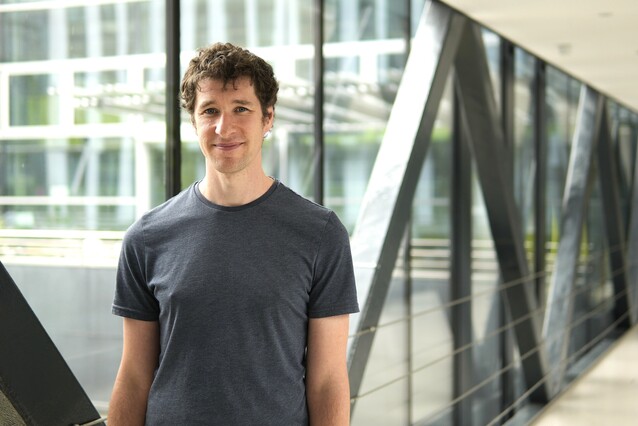FWF Principal Investigator Project Grant for Daniel Grabarczyk
Daniel Grabarczyk, Research Associate in Tim Clausen’s lab at the IMP, secured Principal Investigator Project funding from the Austrian Science Fund (FWF).
Daniel Grabarczyk, Research Associate in the Clausen lab at the IMP, has been awarded a prestigious FWF Principal Investigator Project Grant to support his research into the molecular mechanisms of innate immunity against viruses.
As our body’s first line of defence, innate immunity recognises danger signals associated with pathogens like bacteria and viruses, and acts immediately to block them, keeping us safe before other, more complex immune responses kick in. To better understand innate immunity, Grabarczyk will study the unique molecular properties of ZNFX1, a protein with an essential but still poorly understood role. Mutations in ZNFX1 disrupt cellular immune defence against viruses, leading to severe immunodeficiency. To better understand ZNFX1’s function in immunity, Grabarczyk’s project will explore its unusual enzymology. “ZNFX1 is special because it combines several specialized molecular functions in a way that is uncommon among other similar proteins. This allows ZNFX1 to sense viral RNA and induce ubiquitination, a process that labels molecules for degradation,” Grabarczyk explains.
Daniel Grabarczyk earned his PhD in Molecular Biochemistry and Chemical Biology from the University of Oxford, UK, working on microbial bioinorganic chemistry. After postdoctoral work at the University of Würzburg, Germany, studying DNA replication, he joined Tim Clausen’s lab at the IMP in 2021 where he is now a Research Associate. His current research focuses on the molecular mechanisms of ubiquitin ligases.
About FWF funding
The Austrian Science Fund (FWF) is Austria's central funding organization for basic research. FWF Principal Investigator Projects grants support high-quality, innovative basic research across all disciplines. They provide funding for individual researchers or small teams to conduct independent research projects with international impact. Selection is based on scientific excellence and an international peer-review process.
Further Reading
